In the context of the "extremely hot" Middle East with the focus on the conflict between Israel and the Palestinian Islamic movement Hamas, Saudi Arabia still does not miss the opportunity to organize the annual investment event, often referred to as "Davos in the desert".
Despite being overshadowed by what is happening in Gaza, the investment conference in Riyadh still brought together 6,000 participants from more than 90 countries and 500 regional and international speakers from various sectors, and witnessed billions of dollars worth of deals being “closed”.
Vision 2030
Speaking to a rapt crowd at the glitzy Ritz Carlton hotel in the capital Riyadh five years ago, Saudi Arabia’s de facto leader, Crown Prince Mohammed bin Salman (MBS), said he believed the Middle East could become “the new Europe”.
“The next global renaissance in the next 30 years will be in the Middle East,” Crown Prince MBS said in 2018, during the second Future Investment Initiative (FII). “This is the Saudi fight. This is my fight,” he continued. “I don’t want to leave this world before I see the Middle East at the top of the world .”
The powerful Crown Prince went on to present Vision 2030 – an incredibly expensive and ambitious plan to diversify the Saudi Arabian economy away from its dependence on oil.
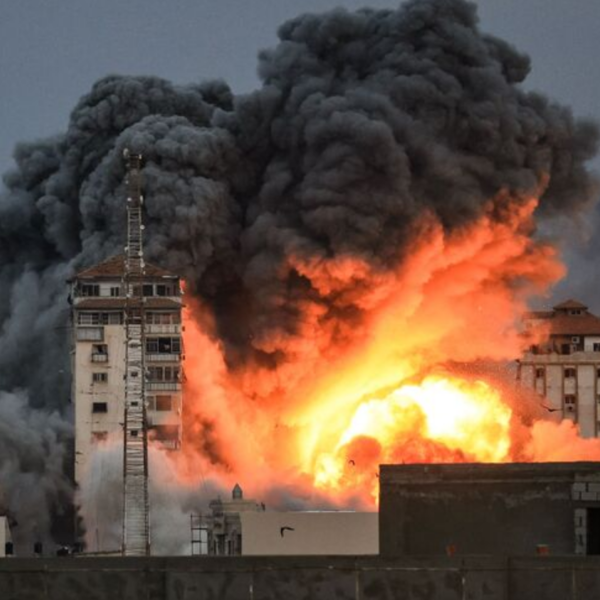
Crown Prince Mohammed bin Salman (MBS) and South Korean President Yoon Suk Yeol at the 7th Future Investment Initiative (FII7) forum, in Riyadh, Saudi Arabia, opening on October 24, 2023. Photo: Saudi Gazette
At the time, his speech received applause and a standing ovation – despite the fact that many Western guests skipped the event because of the murder of journalist Jamal Khashoggi that took place shortly before FII 2018 opened.
At this year’s FII, which took place from October 24-26, the investment conference dubbed “Davos in the desert” was overshadowed by the latest wave of Israel-Hamas conflict, the consequences of which threaten to derail the oil-rich Gulf nation’s ambitions.
However, the conflict thousands of miles from the Saudi capital Riyadh only cost the conference a handful of attendees.
Wall Street's top financiers, notably Goldman Sachs' David Solomon, JPMorgan's Jamie Dimon and Citi group 's Jane Fraser , still showed up and spoke despite widespread concerns about travel to the Middle East.
The annual event is often used by attendees as an opportunity to build relationships with some of Saudi Arabia's biggest companies and the country's $778 billion sovereign wealth fund , lured by the promise of deals as the kingdom embarks on its ambitious Vision 2030 reform plan.
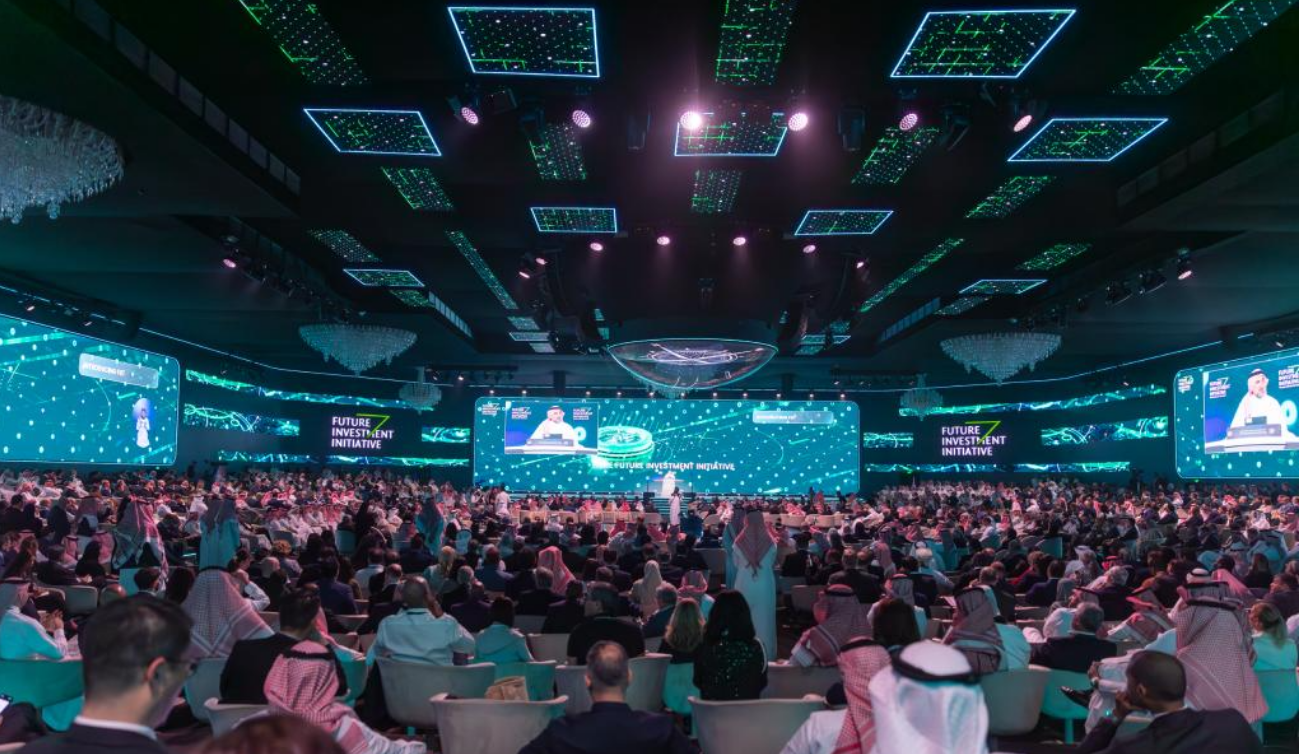
Guests attend the opening ceremony of the 7th Future Investment Initiative (FII7) forum in Riyadh, Saudi Arabia, October 24, 2023. Photo: Xinhua
Last year, Saudi Arabia spent billions of dollars on companies ranging from sports and gaming to airlines. This year, Saudi Telecom Corp bought a nearly 10% stake in Spain's Telefonica.
Billion-dollar deals are expected to be sealed at this year’s event. The first of them was announced on October 24: a $0.5 billion plan for the Public Investment Fund (PIF), Saudi Arabia’s sovereign wealth fund, to invest in a car factory in the Gulf state with South Korean automaker Hyundai.
Conflict “overshadows everything else”
Being present at the event makes sense despite what's happening in Gaza, Karen E. Young, a senior research scholar at Columbia University's Center on Global Energy Policy, told DW.
“Investors have paid a lot of money to attend the conference. They see Saudi Arabia and the PIF as a major source of investment and opportunity,” Young said. “They simply want to see how the Gulf states and their sovereign wealth funds will act in this crisis.”
However, within the framework of the investment event, discussion of the latest conflict in Gaza was inevitable.
After Hamas launched a shocking attack on Israel on October 7 that killed more than 1,400 people there, the Israeli military (IDF) bombed the Gaza Strip, one of the most densely populated places on earth – with 2.3 million people spread over 365 square kilometers.
According to the Hamas-run health agency in Gaza, an estimated 7,000 Palestinians , nearly half of them children, have been killed by Israel's relentless airstrikes and shelling. The death toll is expected to rise.
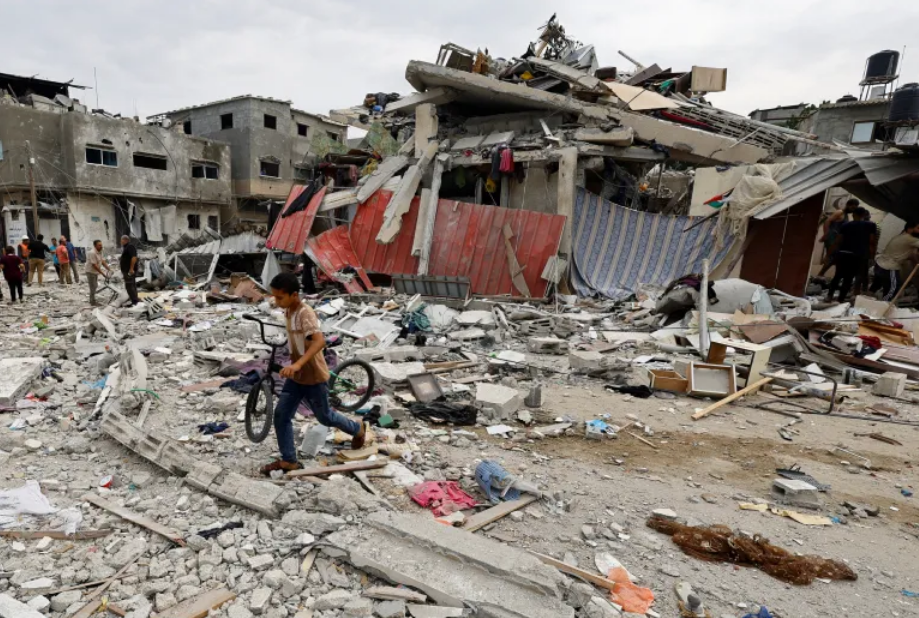
A view of the devastation caused by Israeli airstrikes in Khan Younis, southern Gaza Strip, on October 27, 2023. Photo: Al Jazeera
What is happening in Gaza “overshadows everything else,” Saudi Investment Minister Khalid al-Falih was quoted as saying by the Wall Street Journal. “But for their sake and for the sake of humanity, we must remain oriented toward the prosperity of our people.”
Citigroup CEO Jane Fraser said it was hard not to be pessimistic in this environment, and BlackRock boss Larry Fink said fighting in Ukraine and Gaza would lead to greater social unrest and therefore less hope. He argued that would weigh heavily on consumer sentiment and ultimately slow economic growth.
In the short term, the biggest potential economic problems from the Gaza conflict could involve oil supplies and prices, economists say. In a worst-case scenario, as the conflict spreads beyond Israel, oil prices could rise to $150 a barrel, analysts at Bloomberg said this week. Prices are currently around $90 a barrel. That would lead to more inflation and slower growth.
Other immediate risks include increased refugee flows, rising insurance costs and threats to countries in the region that rely on tourism income.
Risks to trade routes
Another project at risk is the India-Middle East-Europe Economic Corridor (IMEC), announced last month. It is a trade corridor linking India to Europe via the Middle East. Saudi Arabia, the United Arab Emirates (UAE) and Israel have all signed a memorandum of understanding for the trade corridor, as have several European countries and India.
This was previously impossible because of the poor relations between Israel and Saudi Arabia. But by October 7, the two countries were very close to normalizing relations. Reconciliation with Israel fits into Saudi Arabia’s Vision 2030, as it would give Riyadh access to Israeli technology, a possible defense deal with the United States, and the ability to license the leading Arab kingdom’s civilian nuclear program.
IMEC will also play a key role in closer cooperation between Saudi Arabia and Israel as the Arabs have pledged $20 billion for the new trade route.
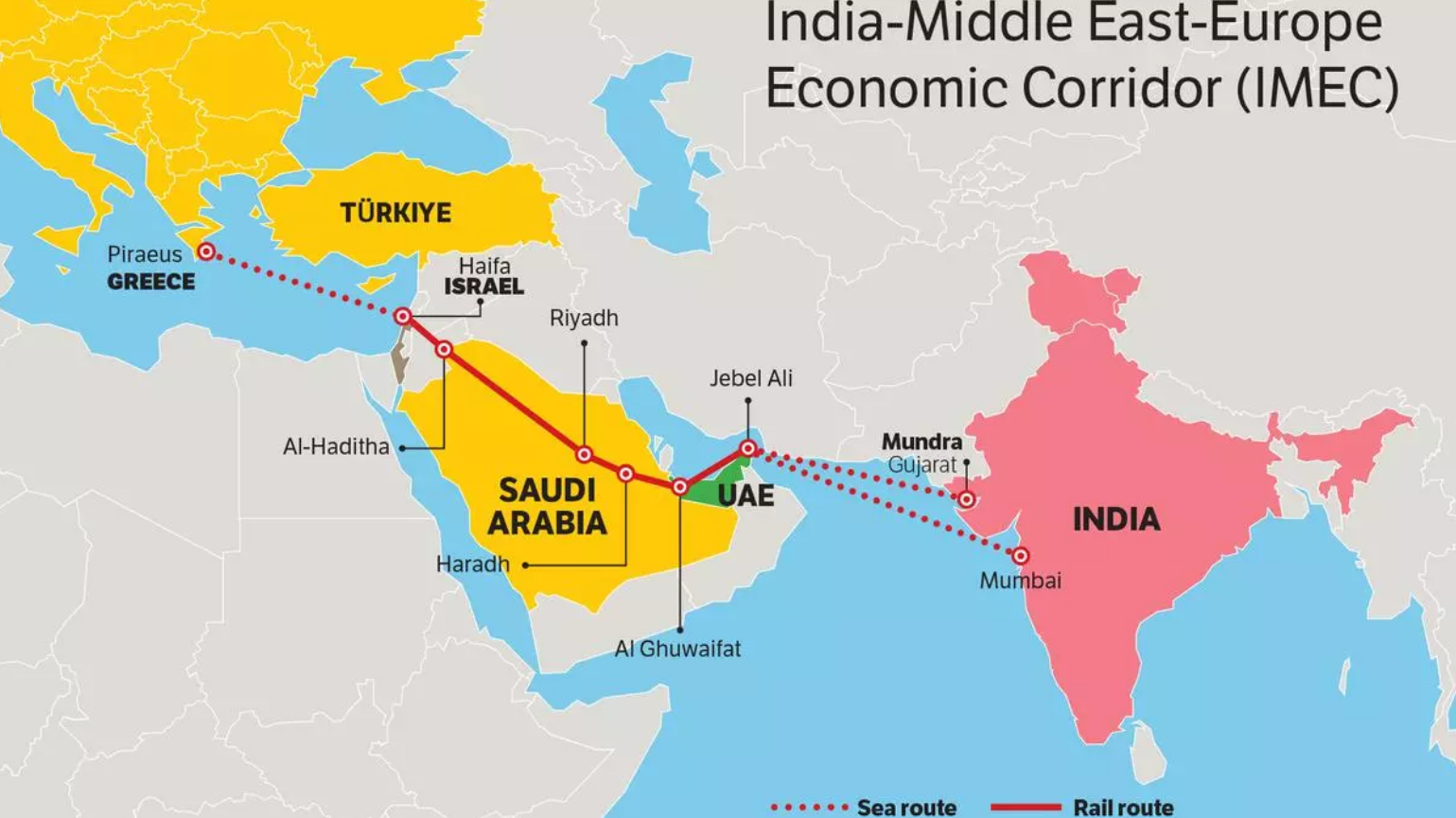
The US sees the IMEC project as a tool to normalize relations between Israel and Saudi Arabia, according to Mr. Ahmed Aboudouh, an expert at the Chatham House research organization (UK). Photo: Frontline The Hindu
“The smooth flow of goods and investment from the western Indian Ocean to the eastern Mediterranean is a geopolitical game-changer that could attract other countries in the future,” Michaël Tanchum, senior fellow at the Austrian Institute for European and Security Policy, told DW about IMEC.
However, following the October 7 attack and Israel's bombing of the Gaza Strip, Saudi Arabia said it was pausing the normalization process with the Jewish state.
And IMEC could become “collateral” for the damage, Herve Delphin, the European Union’s special envoy to India, told Indian media this week. “The question is whether it is temporary collateral or permanent collateral,” Delphin said, adding that it would depend on whether the conflict escalates further.
The Threat to a New Middle East
Saudi Crown Prince MBS has previously argued that regional stability is necessary to achieve Vision 2030. And “war is a threat to his vision of a new Middle East, as an integrated hub for overseas investment, tourism and trade,” agreed Columbia University’s Young.
Like many other observers, Ms. Young also believes that although the normalization process between Saudi Arabia and Israel has stalled due to the Gaza conflict, it is not dead.
On October 25, the second day of the FII, Saudi Finance Minister Mohammed al-Jadaan told conference attendees that his country does not want the conflict in Gaza to derail Saudi Arabia’s plans. “So we are working very hard with our partners to make sure we get back to where we were,” he said.
“Saudi Arabia’s leadership understands that the Palestinian issue still weighs heavily on its domestic and international influence, its bargaining with the United States, and its competition with other Muslim countries,” Yasmine Farouk, a nonresident fellow in the Middle East Program at the Carnegie Endowment for International Peace, said earlier this month.
Still, Ms. Farouk concluded, Saudi Arabia is likely to be more pragmatic in the near future and will aim to build regional consensus .
Minh Duc (According to DW, Reuters, Xinhua)
Source






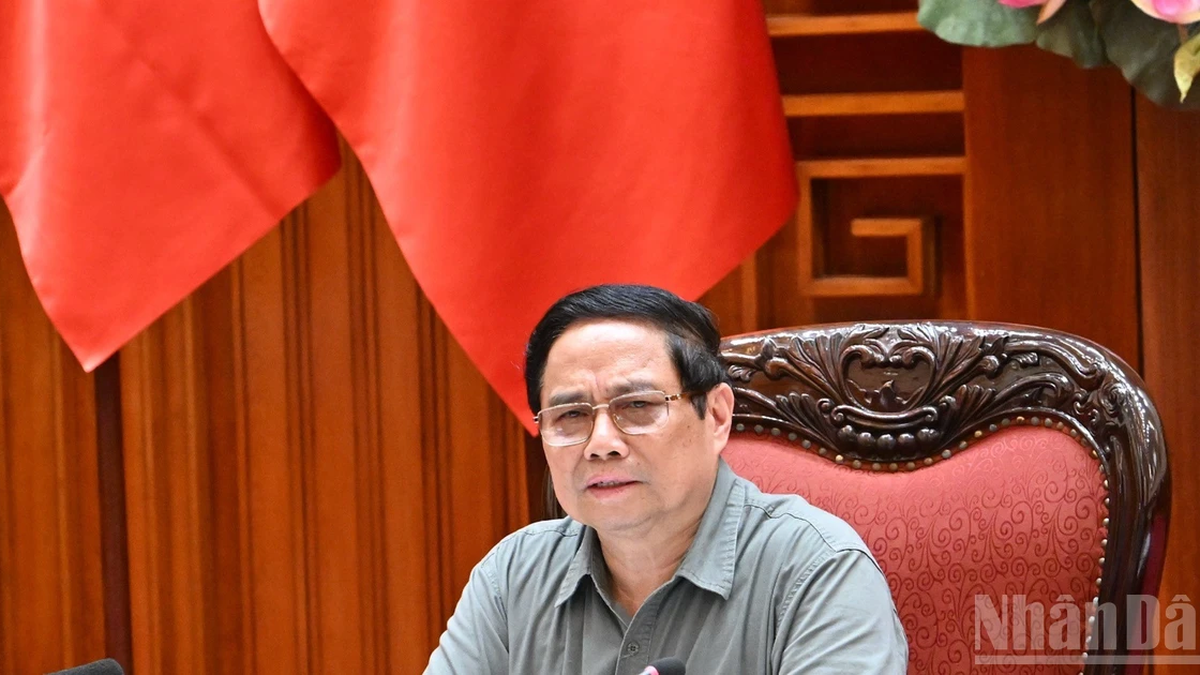



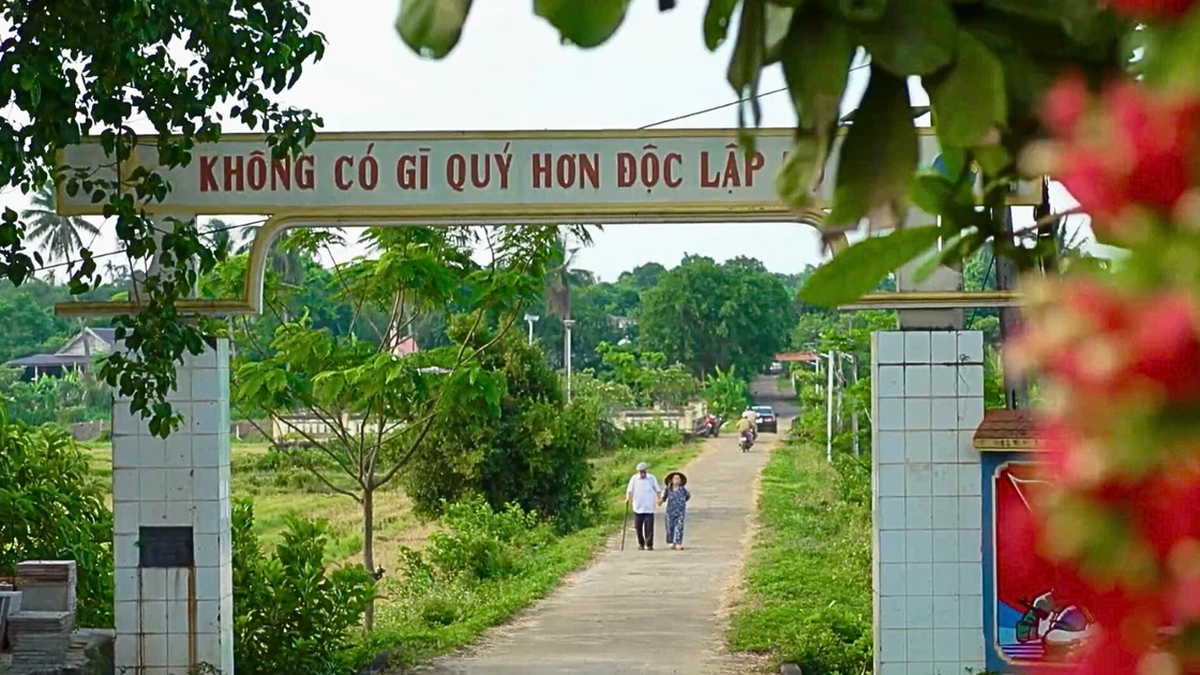
























































































Comment (0)